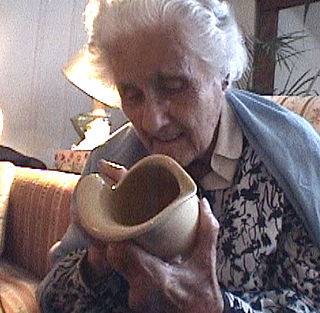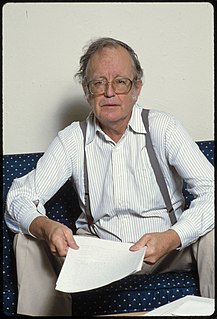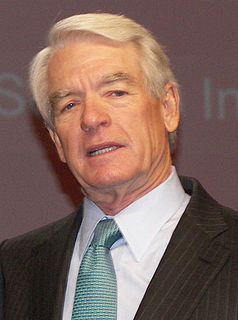A Quote by Anton Chekhov
Isolation in creative work is an onerous thing. Better to have negative criticism than nothing at all.
Related Quotes
To be different is a negative motive, and no creative thought or created thing grows out of a negative impulse. A negative impulse is always frustrating. And to be different means ‘not like this’ and ‘not like that.’ And the ‘not like’—that’s why postmodernism, with the prefix of ‘post,’ couldn’t work. No negative impulse can work, can produce any happy creation. Only a positive one.
As far as criticism, I don't mind critics. I mean, I wrote for 'Rolling Stone' for a hot minute. I like criticism. I enjoy criticism. The thing I don't like is cruelty for cruelty's sake. You don't have to be a jerk to say something negative. You can say something in the negative sense and have class.
Individuality is different than isolation. Isolation is trying to do everything on your own, living life by yourself. Isolation happens when you choose not to be involved in any communities, making sure you keep a safe distance from people in your life. I’m not recommending isolation. Science, psychology, and religion all suggest long term isolation is dangerous and unhealthy.
You see an artist, a creative person, can accept criticism or can live with the criticism much more easily than with being ignored. Criticism makes you feel alive. If somebody is bothered enough to speak vituperatively about it, you feel you have touched a nerve and you are at least 'in touch.' You are not happy that he doesn't like it, but you feel you are in contact with life.
It is a fallacy to think that carping is the strongest form of criticism: the important work begins after the artist's mistakes have been pointed out, and the reviewer can't put it off indefinitely with sneers, although some neophytes might be tempted to try: "When in doubt, stick out your tongue" is a safe rule that never cost one any readers. But there's nothing strong about it, and it has nothing to do with the real business of criticism, which is to do justice to the best work of one's time, so that nothing gets lost.
There is nothing else that so kills the ambitions of a person as criticisms from superiors. I never criticize anyone. I believe in giving a person incentive to work. So I am anxious to praise but loath to find fault. . . . I have yet to find a person, however great or exalted his station, who did not do better work and put forth greater effort under a spirit of approval than he would ever do under a spirit of criticism.
People are more interested in reading bombastic ideas, whether they're positive or negative. Part of me has sort of lost interest in doing criticism because of that. I've always realized that criticism is basically autobiography. Obviously in my criticism, it's very clear that it's autobiography, but I think it's that way for everybody.



































